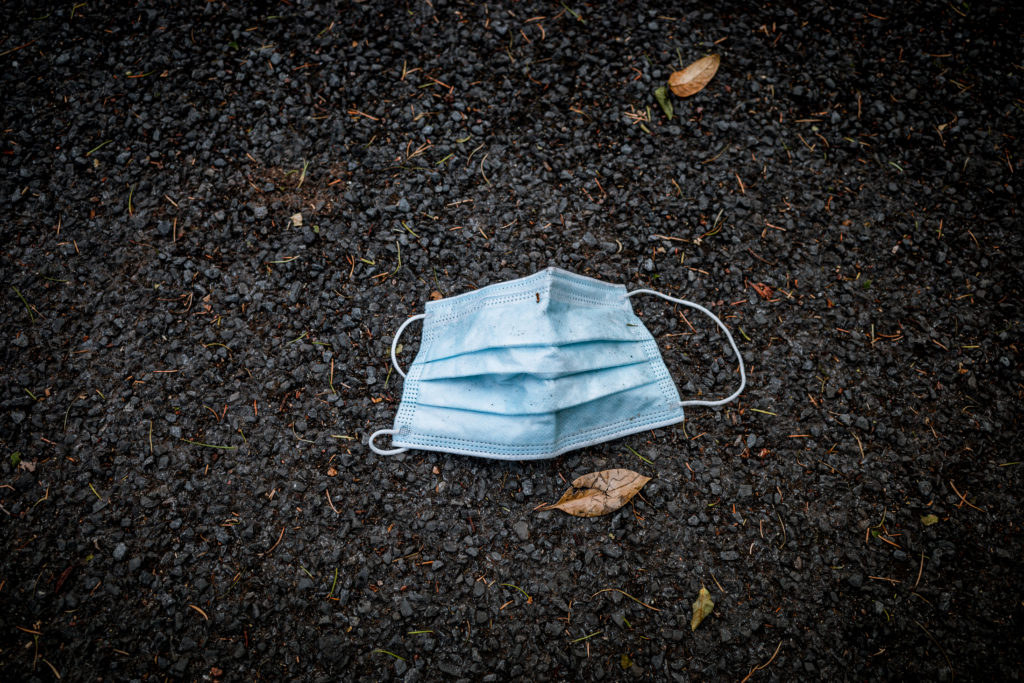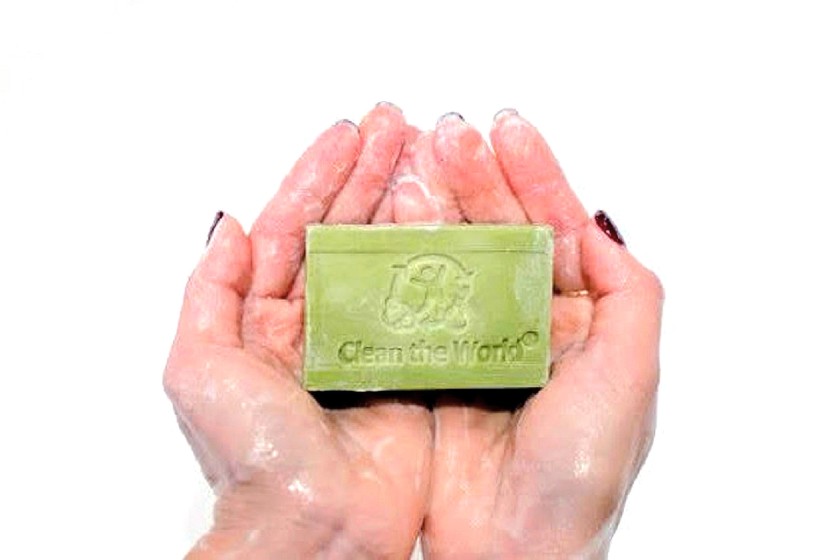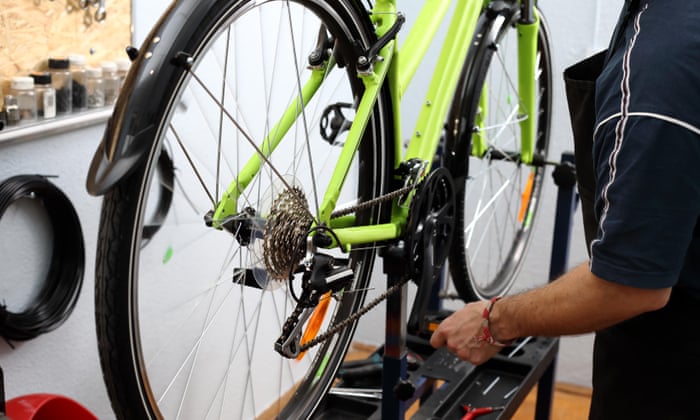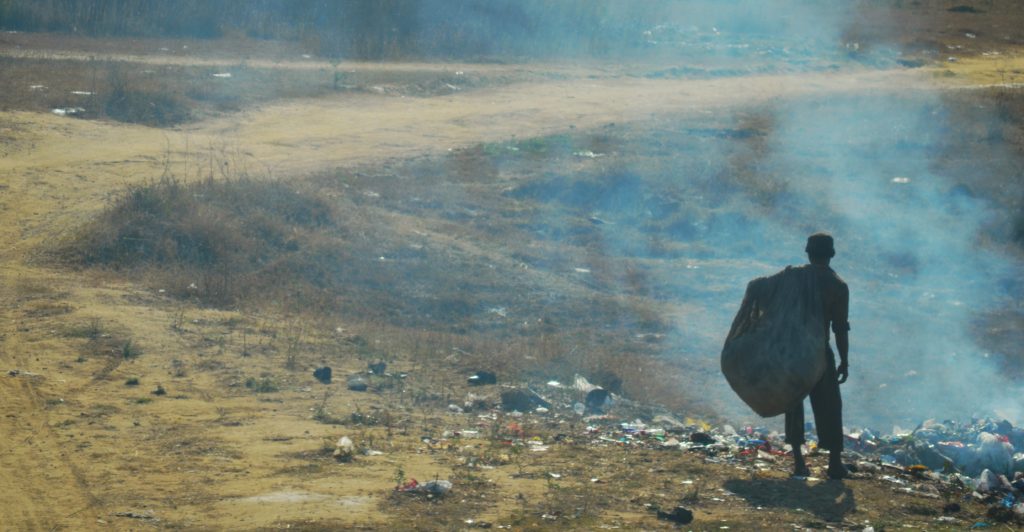Rethinking circular economy in the time of Covid-19
At Sparknews, we believe that they can also be great opportunities to adapt and rethink our relations with the world. As a team who wants to ignite new narratives that can accelerate the ecological and social transition, we can’t avoid asking ourselves what will be the shape of the global collective story emerging from the current worldwide sanitary emergency. In this week #SparkMinute, let’s focus on circular economy with local examples, of businesses rethinking their models, and of articles and opinions that can nourish our imagination.

What if our mistake was wanting disposable masks?

When organizations go the extra mile
As the coronavirus epidemic continues to rage, handwashing is still an indispensable gesture. Hong Kong-based NGO Soap Cycling has beencollecting leftover soap from hotels in the city and processing it to distribute to the homeless and people in low-income communities in Asia. In the United States, the charity Clean the World delivered 3 million bars of soap recycled from used soap donated by hotels. Read more in the South China Morning Post and the Los Angeles Times.
The race to find a sustainable alternative to surgical face masks is still on. According to The Engineer, researchers at the University of British Columbia in Canada are developing a fully compostable and biodegradable medical-grade face mask out of one of the country’s most plentiful raw materials: wood. ShoeX has launched its new product line of face masks, made from Vietnamese coffee beans, that is reusable, biodegradable and antibacterial. Learn more on Sprudge.

Local initiatives against global disorder
The bicycle industry in the United Kingdom has seen a surge in business since the beginning of lockdown, particularly for bicycle menders, as people get old bikes out of their sheds in a bid to avoid public transport. According to The Guardian, several bike shops near hospitals have been servicing NHS workers’ bikes for free, or at a discount, including Brompton Bicycle, that has lent 200 bicycles to St Bartholomew’s Hospital staff in central London for a month.
During lockdown, community repair groups and networks have adapted by offering online repair sessions. Repair Café Paris invited the local community to sign up to online workshops for help with repairs. Other groups around the world run similar events, including Reading Repair Café (UK), Repair Café Aschaffenburg (DE), Repair Café North Carolina (USA), Repair Café Steenokkerzeel (BE), Marlow Repair Café (UK). Explore how different groups and networks continuing their work online on The Restart Project blog and discover the Canadian repair scene in this CBC article.
Want to learn more about the transition from a linear to a circular economy? The Ellen MacArthur Foundation has freely available learning offerings — MOOCs (Massive Open Online Courses) — on the topic from universities like Delft University of Technology, Leiden University, McMaster University, Exeter University and Bradford University. The From Linear to Circular programme is, for example, an exclusive 8-week global learning experience for young professionals and postgraduate students. You can also read Sparknews’ white paper on the circular economy.

Let’s imagine the future
In this post on the OECD Forum blog, Oriana Romano, Head of Unit of Water Governance and Circular Economy at the OECD, explores why cities should embrace the circular economy to shape our post-COVID-19 future. Although the circular economy is not the panacea for overcoming COVID-19, it can help address unsustainable trends and find adequate solutions. Oriana explains the steps through which COVID-19 can accelerate the transition towards a circular economy in cities: (1) take action before another crisis hits, (2) turn the crisis into opportunity, and (3) embrace the new normal. Read more.
Even fakes become originals when you repair them. Making repairs is good for the imagination. To fix is to discover. These are some of the ideas covered in the Repair Manifesto, a declaration of intentions by the collective Platform 21 downloaded over one million times. This design platform in Amsterdam aims to positively influence the relationship between the user and the product. With its Repair Manifesto, it provides eleven steps on how to stop recycling and start repairing. Read it here.
What would a sustainable circular economy look like? In this article for The Conversation, Anne Velenturf, Research Impact Fellow in Circular Economy, and Phil Purnell, Professor of Materials and Structures, both from the University of Leeds, present the results of their research programme on the implementation of a circular economy in the UK. They found that three broad types of economic models exist for implementing a circular economy in the UK: (1) closing loops with energy from waste, (2) a circular economy based on recycling, and (3) a sustainable circular economy. Only such a circular economy could potentially regenerate the environment. Read the article here.
At Sparknews, are convinced that the coronavirus global outbreak will lead us to draw valuable lessons about our globalized economic system. Whether on matters like education, solidarity, biodiversity or our way of work, it will be up to us to return to the status quo once the health crisis is over, or to reshape everything. Discover our #SparkMinute on education, energy, work, our diet, biodiversity, democracy, bioregionalism, gender, and solidarity.




